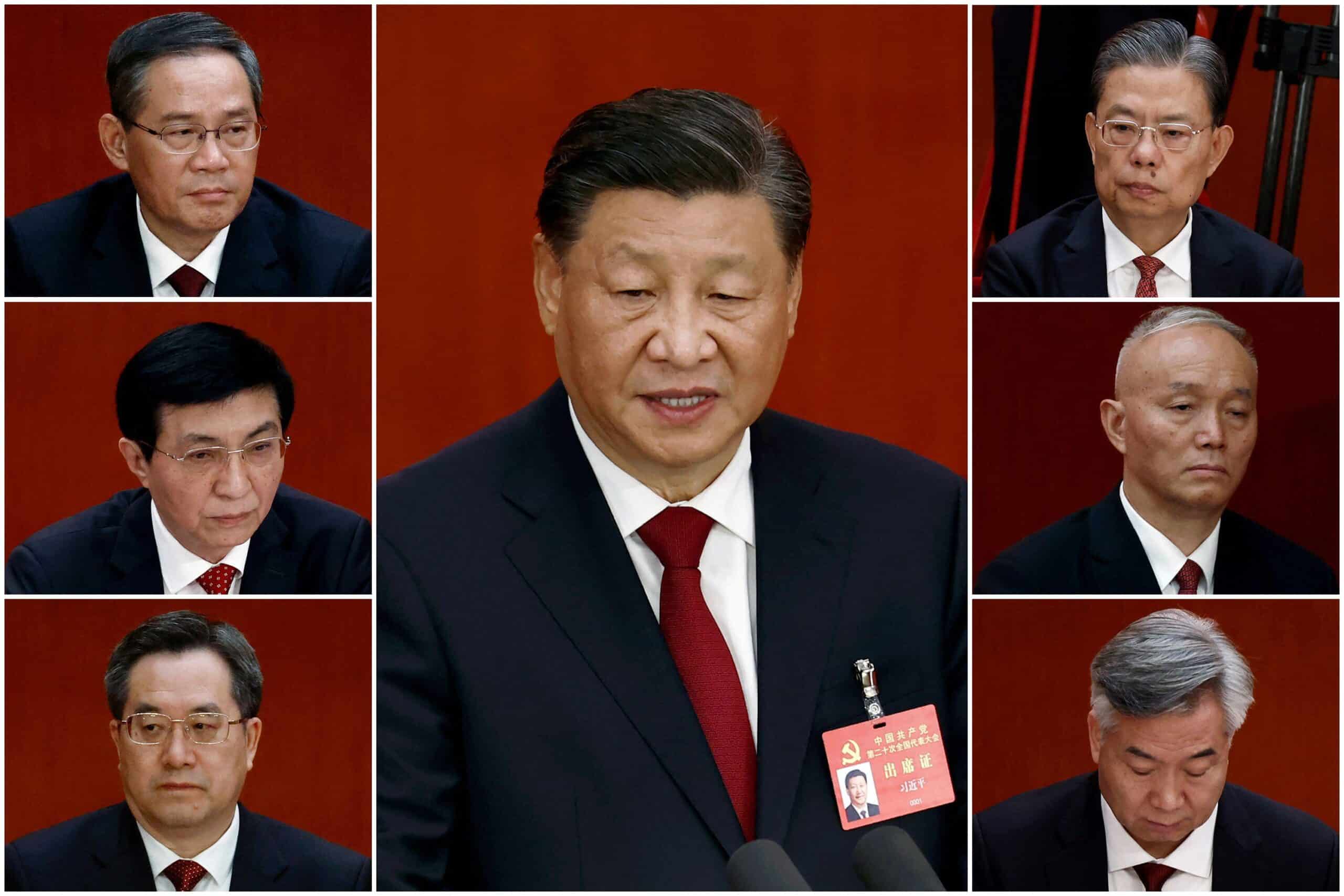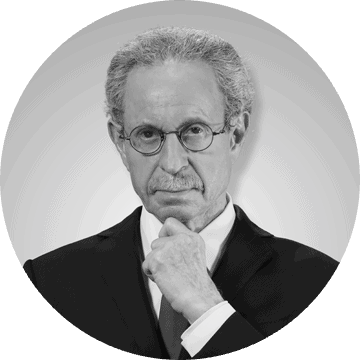
We missed the clues. Foreign analysts surprised that all members of the new Politburo Standing Committee (PSC) of the Communist Party of China (CPC) have close relations with General Secretary Xi Jinping should have seen it coming. Prior to past congresses, rumors of prospective PSC members generally swirled in ever tighter circles and often congealed. But this time, prior to the 20th National Congress, the rumors continued to be diverse and lacking in credibility, indicating Xi’s extraordinarily tight control of Party leaders and any information about them.
Over the past year or so I heard, at different times, four names allegedly in the lead for premier. Li Qiang, the man apparently now set to win the post, was not in the top three among foreign handicappers until just before the Congress. When I was asked to predict PSC members, I said that when the men walk on to the stage, then I would be able to ‘reverse engineer’ each name and explain why each is there. This may sound like trivial hindsight, but it can provide insight too.
“Struggle” has become the defining descriptor of Xi’s “new era”… So it is understandable that he has demanded a team that he can trust, in every sense of the term “trust”.
I have two overarching observations. First, the group is highly coherent in its support of Xi Jinping. “Struggle” has become the defining descriptor of Xi’s “new era” — he highlighted immense risks, grave challenges and arduous tasks in his report to the Congress. So it is understandable that he has demanded a team that he can trust, in every sense of the term “trust.” Second, each of the members has expertise and long experience in running critical sectors of the Chinese government.
Conventional wisdom holds that officials in authoritarian systems tell the leader what he wants to hear, and that dictators cocooned with yes-men never end well. It is trendy to compare Xi Jinping with Russian President Vladimir Putin both in terms of their near-absolute power, and in their being surrounded by carefully chosen, steadfastly loyal acolytes.
A crucial difference, however, is that Xi’s people have run serious stuff: four of the six PSC members aside from the general secretary have led provinces or major municipalities, each the equivalent in population and GDP of independent countries. A contrarian thesis is that a loyal group could be more effective in reaching and influencing Xi, because he would be confident that their critique would aim to bolster not to undermine him; and because they would know that he would know this, they could be more, not less candid in their critiques. Any dissent would all happen in the strictest of privacy: With potential or perceived rivals or successors, Xi would never feel so confident.

Full disclosure: I have known three PSC members (including Xi) personally for years. With my long-term partner, Adam Zhu, I’ve had private meetings, conducted interviews, worked projects — not all of which are in the public record.
First on the new PSC, to the surprise of no one on planet earth, is Xi Jinping. Xi is the “core” of the CPC Central Committee and of the whole Party, which puts his authority above all others on the PSC and indeed on the full Politburo combined.
Second is Li Qiang, expected to become premier of the State Council at the National People’s Congress in March. Li was previously governor of Zhejiang Province, and party secretary of both Jiangsu Province, and of the Shanghai municipality, China‘s leading commercial center. Their combined GDP would constitute the fifth largest independent country in the world. When Xi was Zhejiang Party Secretary, Li was secretary-general of the party committee, in essence Xi’s chief of staff.
In one of my meetings with Li Qiang, while I was researching and filming Zhejiang’s environmental innovations in May 2016, we discussed the province’s pioneering programs in ecological civilization. Li had innovation and entrepreneurship on his mind, as the next day he would meet 10 new-generation entrepreneurs, telling them that the “innovative generation” is key to industrial transformation.
Li is open, warm, approachable, down-to-earth. He was between meetings, and as he walked in, he said with a smile, “It’s good that Dr. Kuhn and I are old friends, so I don’t have to change into formal clothes.”
Third, is Zhao Leji, who is expected to head the National People’s Congress, China’s highest legislative body. Formerly, Zhao was head of the Central Commission for Discipline Inspection, and party secretary of two provinces, Qinghai and Shaanxi, the latter a place with long-term relevance for President Xi and his family.
Fourth, is Wang Huning, expected to head the Chinese People’s Political Consultative Conference, China’s highest advisory body — with increasing clout to affect policy and programs. Formerly a distinguished professor of international politics and law, Wang is a sophisticated political and geopolitical thinker. He has, remarkably, supported three generations of China’s senior leaders, and he has been a key member of Xi’s inner team.

When I received the China Reform Friendship Medal on December 18, 2018, as all the leaders, led by President Xi, walked by, Wang glanced my way and with a twinkle in his eye asked, in English, “Do you remember me?” We both smiled.
Fifth is Cai Qi, who heads the CPC Secretariat and oversees the party’s day-to-day operations, including its organization and publicity departments and ideology. Cai had party and government roles in Fujian and Zhejiang provinces, overlapping in both with Xi’s periods of leadership, and was most recently party secretary of Beijing.
Sixth is Ding Xuexiang, expected to become executive vice premier. He has been director of the CPC General Office and the general secretary’s office, thus Xi Jinping’s chief of staff; Ding always travels with Xi. Trained as an engineer, Ding had multiple leadership roles in Shanghai, from science and technology to political and legal affairs, where he worked under Xi in 2007.
Seventh is Li Xi, who now runs the Central Commission for Discipline Inspection, China’s corruption buster. Li was party secretary of Liaoning and Guangdong provinces.

President Xi Jinping has put forth a grand vision of China’s great rejuvenation, along with a sober assessment of the “struggles” that lie ahead. This is why he requires a senior team where every member, in addition to being well prepared for the job, has a strong relationship with the boss.
What are the implications? All political systems have tradeoffs: the strength of authoritarian systems is that they enable policies that need long-term commitment to receive it: take poverty alleviation. The weaknesses, obviously, cluster around bottlenecks or restrictions of information and minimal or non-existent checks-and-balances, such that even infrequent occurrences of weakness-generated mistakes can derail or destroy frequent instances of strength-generated achievements.
… China’s political system has become more stable and predictable with [Xi]: and when the time arrives, more unstable and brittle without him.
While China’s elite are generally not thrilled by the country’s authoritarian turn, China’s populace enthusiastically supports Xi’s three ‘antis’: anti-poverty, anti-pollution, anti-corruption — and nationalism in China, as nationalism everywhere, is often a common unifier.
The critical success factor could be what Xi’s PSC team tells him behind those tightly sealed doors. We will not hear this jury deliberate; there will be few leaks from the jury room. But the verdict shall come and the world shall bear witness.
More fundamentally, with Xi Jinping now personally “established” as “core” of the party and “Xi Jinping Thought on…” established as the sole interpreter of party ideology, China’s political system has become more stable and predictable with him: and when the time arrives, more unstable and brittle without him.
Click here to read a profile of Robert Lawrence Kuhn written by Matt Schiavenza for The Wire China.

Robert Lawrence Kuhn is long-term advisor to China’s leaders and multinational corporations. He received the China Reform Friendship Medal. He was profiled in these pages here.



